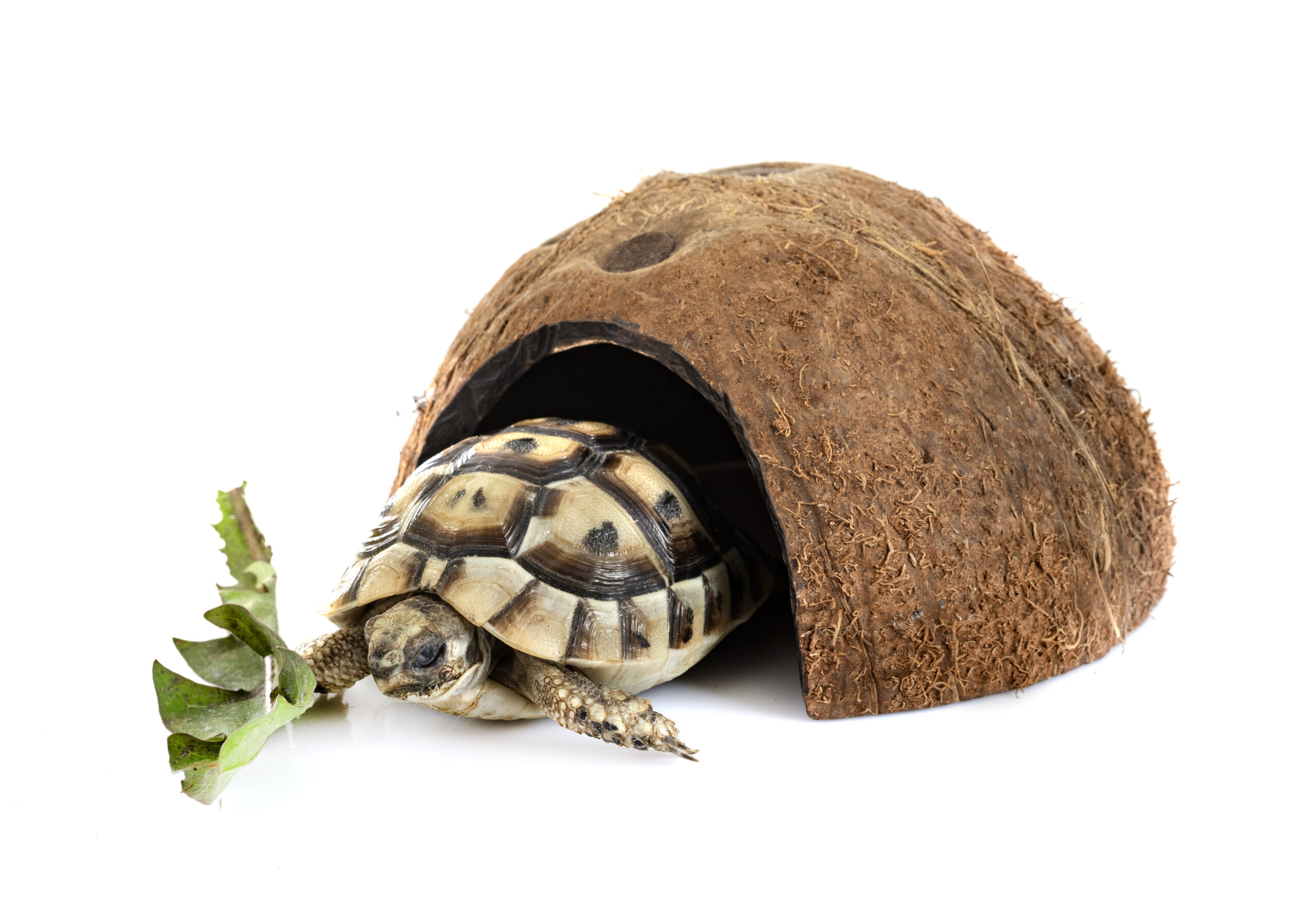Turtles are fascinating creatures with unique behaviors, and their sleeping habits are no exception. Many pet owners have wondered if turtles snore, and the answer may surprise you. While there is no scientific evidence to suggest that turtles snore in the traditional sense, anecdotal evidence suggests that they may make noise while sleeping.
Unlike humans who typically have one long sleep session at night, turtles engage in polyphasic sleep, meaning they take short naps throughout the day. Some species can even sleep underwater for several hours. These sleeping patterns allow turtles to conserve energy and stay alert to potential dangers in their environment.
So, do turtles really snore? While there has been no scientific study specifically addressing this question, many turtle owners have reported hearing noises coming from their sleeping turtles. These noises may not be snores in the traditional sense, but rather unique sounds produced by their respiratory system or other processes.
Key Takeaways:
- Turtles have unique sleeping habits, including polyphasic sleep where they take short naps throughout the day.
- While there is no scientific evidence of turtles snoring, anecdotal evidence suggests that they may make noise while sleeping.
- Turtles have a unique respiratory system, and the noises they produce while sleeping may be related to the movement of air through their lungs.
- Turtles engage in polyphasic sleep to conserve energy and stay alert to potential dangers in their environment.
- It is important to appreciate the unique sleeping behaviors of turtles and not jump to conclusions about their noises.
The Science Behind Turtle Sleep
Turtles have sleep patterns that involve both REM (Rapid Eye Movement) and non-REM stages, similar to humans and other animals. During these different stages, turtles undergo various physiological changes that facilitate restful sleep and overall health maintenance.
Turtles experience both REM and non-REM stages during sleep, similar to humans and other animals. Their heart rate and breathing slow down, and some species can lower their body temperature during sleep.
REM sleep is characterized by rapid eye movements, increased brain activity, and vivid dreaming. It is during this stage that memory consolidation and learning processes take place. While it is not yet fully understood if turtles dream, the presence of REM sleep suggests the possibility.
Non-REM sleep, on the other hand, is essential for rest and recovery. During this stage, turtles’ heart rate and breathing slow down, allowing their body to conserve energy and promote physical rejuvenation.
“Research suggests that sleep may play a vital role in memory consolidation and overall health maintenance for turtles.”
To better understand turtle sleep patterns, scientists have conducted studies to monitor their brain activity, eye movements, and physiological changes during sleep. These studies have revealed valuable insights into the sleep habits of different turtle species, such as the leatherback turtle, loggerhead turtle, and green sea turtle.
| Turtle Species | Sleep Patterns | Physiological Changes |
|---|---|---|
| Leatherback Turtle | Predominantly non-REM sleep | Decreased heart rate and body temperature |
| Loggerhead Turtle | Both REM and non-REM sleep | Slow heart rate and decreased brain activity |
| Green Sea Turtle | Significant REM sleep | Rapid eye movements and increased brain activity |
By studying the sleep patterns and physiological changes during sleep, researchers gain valuable insights into the importance of sleep for turtles’ overall well-being.
Anecdotal Evidence From Turtle Owners
Many turtle owners have reported hearing their pet turtles make noises while sleeping. While there is no scientific evidence of snoring, these noises may be related to the way turtles breathe. Turtles have a unique respiratory system, and the sounds could be produced by the movement of air through their lungs while sleeping.

When it comes to sleeping habits, turtles can be fascinating creatures. While some turtle owners may be surprised by the noises their pets make during sleep, these sounds are not necessarily signs of snoring. Instead, they could be attributed to the intricate workings of a turtle’s respiratory system.
Turtles have a unique way of breathing. Unlike humans who use their ribcage to breathe, turtles rely on the movement of their limbs and neck to facilitate respiration. This unique respiratory system allows turtles to breathe efficiently while swimming and diving.
During sleep, turtles may experience changes in their breathing patterns. As they relax, the movement of air through their lungs can create subtle sounds. These sounds might vary depending on the species and individual turtle. Some owners describe the noises as whistling, wheezing, or even grunting.
While the exact reasons for these noises remain unknown, they are likely a normal part of a turtle’s sleep cycle. Just like humans, turtles transition through different stages of sleep, including both REM (rapid eye movement) and non-REM sleep. These stages involve changes in heart rate, brain activity, and breathing patterns.
Overall, the anecdotal evidence from turtle owners suggests that noises during sleep are common among these unique reptiles. If you are a turtle owner, it’s essential to observe your pet’s sleeping habits and seek professional advice if you notice any concerning symptoms, such as difficulty breathing or excessive noise.
Why Turtles Might Make Noise While Sleeping
Turtles are fascinating creatures, known for their unique behaviors and adaptations. While it may seem surprising, turtles can indeed make noise while sleeping. This phenomenon can be attributed to several reasons, including vocalization and possible dreaming.
Vocalization during Sleep
Some turtle species are known to be vocal creatures, particularly during specific periods such as mating season or when they feel threatened. These vocalizations can range from soft grunts to more distinct sounds. Interestingly, these vocalizations might continue even while the turtles are asleep. It’s possible that their sleeping vocalizations are a continuation of their normal vocal behavior.
The Possibility of Dreaming
While it is unclear whether turtles actually dream, dreaming is a common occurrence in many animals. Dreams are thought to be influenced by an animal’s daily experiences and instincts, providing a means of processing and consolidating information. It’s possible that the noises turtles make while sleeping could be a result of their dreams, similar to how humans might vocalize or move during their dreams.
Anecdotal Evidence from Turtle Owners
“I have observed my pet turtle making unusual noises while sleeping, almost like a soft snoring sound. I believe it’s his way of communicating or expressing himself even in his sleep.” – Jane, turtle owner
Turtle owners often report hearing their pets make noises while they are asleep. While there is no scientific evidence to support the notion of snoring in turtles, these anecdotal accounts provide insights into the various sounds turtles can produce during sleep. It’s important to consider these reports from experienced turtle owners who have observed their pets closely.

In conclusion, the reasons for turtles making noise while sleeping can be attributed to vocalization and potentially dreaming. While further research is needed to fully understand these behaviors, the unique habits of turtles continue to fascinate and intrigue both scientists and pet owners alike.
Expert Insights On Turtle Snoring
When it comes to the intriguing world of turtle sleep behaviors, there is much to learn from the experts. According to turtle experts, turtles do not snore in the traditional sense. However, they do exhibit unique sleep-related behaviors that may be mistaken for snoring by inexperienced observers.
During sleep, turtles may audibly exhale air through their nostrils or emit soft grunting sounds. These noises, while not true snores, can give the illusion of snoring. It is crucial to appreciate the distinctive sleeping habits of turtles and understand that these sounds are simply part of their natural sleep patterns.
So why do turtles make these noises? Turtle experts explain that these sounds are most likely associated with the movement of air through their respiratory system while they sleep. Turtles have a unique way of breathing, which involves drawing in oxygen through muscular movements of their throat and respiratory tract. These movements can result in audible exhalations or gentle grunts.
Therefore, when observing turtles sleep, it’s important not to jump to conclusions based on human snoring expectations. Instead, we should embrace the captivating behaviors of these remarkable creatures and marvel at their extraordinary sleep adaptations.
FAQ
Do turtles snore?
While there is no scientific evidence that turtles snore, anecdotal evidence suggests that they may make noise while sleeping. These noises may be related to the way turtles breathe and could be produced by the movement of air through their lungs while sleeping.
What are turtle sleeping habits like?
Turtles have unique sleeping habits, including polyphasic sleep where they take short naps throughout the day. Some species can even sleep underwater for several hours. Turtles experience both REM and non-REM stages during sleep, similar to humans and other animals. Their heart rate and breathing slow down, and some species can lower their body temperature during sleep.
Why do turtles make noise while sleeping?
Turtles might make noise while sleeping for reasons such as vocalization or dreaming. Some species are known to be vocal during mating season or when they feel threatened, and these vocalizations may continue while they sleep. While it’s unclear if turtles dream, some animals do, and it’s possible that the noises turtles make are a result of their dreams.
Do turtles snore like humans?
According to turtle experts, turtles do not snore in the traditional sense. However, they may make noise while sleeping, such as exhaling air through their nostrils or making soft grunting sounds. These noises are often mistaken for snores by inexperienced observers.
Are there any health benefits to turtle sleep?
Research suggests that sleep may play a role in memory consolidation and overall health maintenance for turtles. While further studies are needed, it’s believed that sleep is crucial for their well-being.
Can pet turtles snore?
While there is no scientific evidence of pet turtles snoring, many turtle owners have reported hearing their pet turtles make noises while sleeping. These noises may be similar to the sounds produced by wild turtles during sleep.







